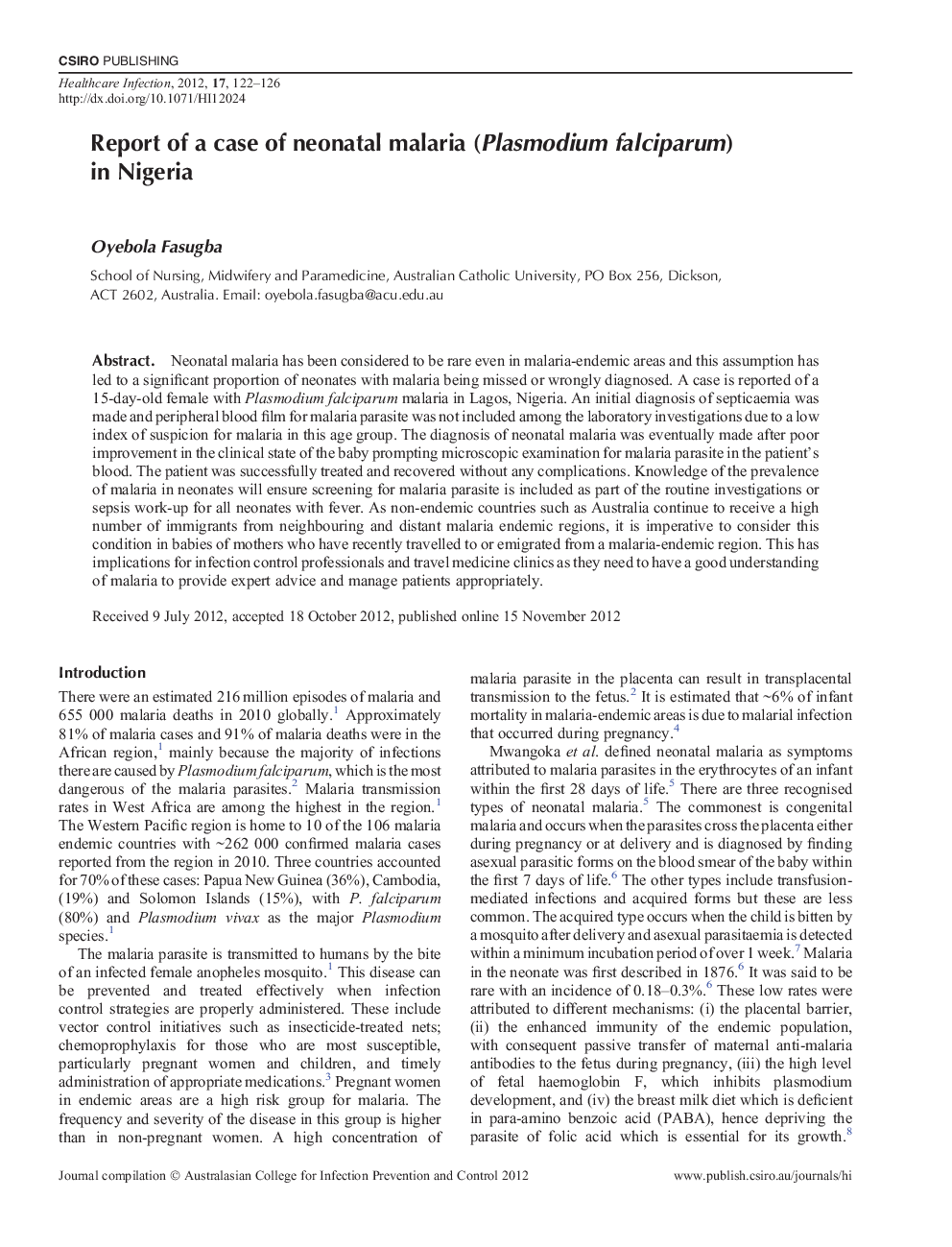| Article ID | Journal | Published Year | Pages | File Type |
|---|---|---|---|---|
| 2683421 | Healthcare infection | 2012 | 5 Pages |
Neonatal malaria has been considered to be rare even in malaria-endemic areas and this assumption has led to a significant proportion of neonates with malaria being missed or wrongly diagnosed. A case is reported of a 15-day-old female with Plasmodium falciparum malaria in Lagos, Nigeria. An initial diagnosis of septicaemia was made and peripheral blood film for malaria parasite was not included among the laboratory investigations due to a low index of suspicion for malaria in this age group. The diagnosis of neonatal malaria was eventually made after poor improvement in the clinical state of the baby prompting microscopic examination for malaria parasite in the patient's blood. The patient was successfully treated and recovered without any complications. Knowledge of the prevalence of malaria in neonates will ensure screening for malaria parasite is included as part of the routine investigations or sepsis work-up for all neonates with fever. As non-endemic countries such as Australia continue to receive a high number of immigrants from neighbouring and distant malaria endemic regions, it is imperative to consider this condition in babies of mothers who have recently travelled to or emigrated from a malaria-endemic region. This has implications for infection control professionals and travel medicine clinics as they need to have a good understanding of malaria to provide expert advice and manage patients appropriately.
